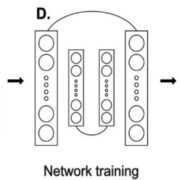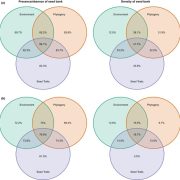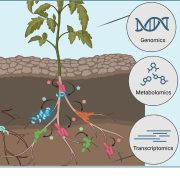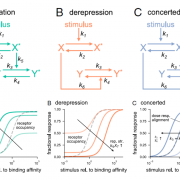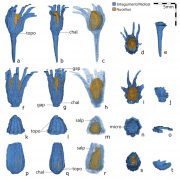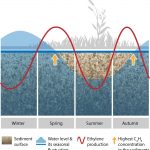Using ‘Machine Learning’ to predict crop behaviour (Nature Plants)
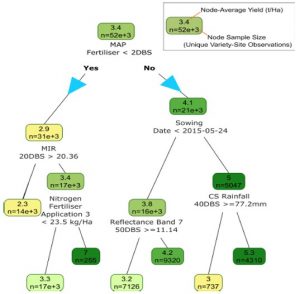 Machine Learning (ML) is described by Wikipedia as ‘the study of computer algorithms that can improve automatically through experience and by the use of data’. In agronomy, machine learning can predict important crop traits (including yield) by analysing the large datasets such as data generated from field trial experiments conducted for several years and form models that can help in understanding plant behaviour. To train their ML algorithms, Newman and Furbank used the Australian National Variety Trial’s satellite data, which includes experiments spanning 10 years from huge plant population with proper experimental controls. The resulting algorithms have predicted important agronomic traits (like yield, flowering, and grain protein) and factors that can effect productivity (like latent heat flux, stomatal conductance and canopy transpiration rates). The authors propose that ML can generate unified models that can integrate data from multiple experiments (metabolic, transcriptomic, proteomic and phonemic) that aid in better cultivation practices. They also observe that satellites are better suited to capture environmental variation compared to ‘ground-stations’ and drones and that satellite data are becoming widely availalbe so have an important future in agronomy. (Summary by Sibaji K Sanyal @SibajiSanyal) Nature Plants 10.1038/s41477-021-01001-0
Machine Learning (ML) is described by Wikipedia as ‘the study of computer algorithms that can improve automatically through experience and by the use of data’. In agronomy, machine learning can predict important crop traits (including yield) by analysing the large datasets such as data generated from field trial experiments conducted for several years and form models that can help in understanding plant behaviour. To train their ML algorithms, Newman and Furbank used the Australian National Variety Trial’s satellite data, which includes experiments spanning 10 years from huge plant population with proper experimental controls. The resulting algorithms have predicted important agronomic traits (like yield, flowering, and grain protein) and factors that can effect productivity (like latent heat flux, stomatal conductance and canopy transpiration rates). The authors propose that ML can generate unified models that can integrate data from multiple experiments (metabolic, transcriptomic, proteomic and phonemic) that aid in better cultivation practices. They also observe that satellites are better suited to capture environmental variation compared to ‘ground-stations’ and drones and that satellite data are becoming widely availalbe so have an important future in agronomy. (Summary by Sibaji K Sanyal @SibajiSanyal) Nature Plants 10.1038/s41477-021-01001-0


